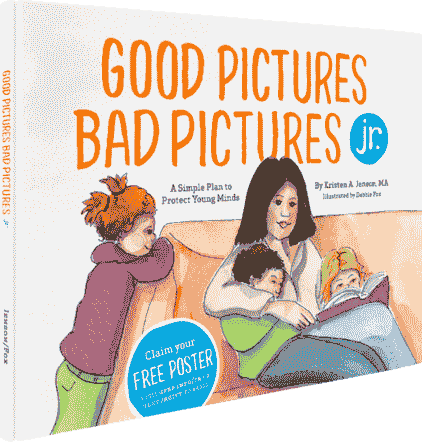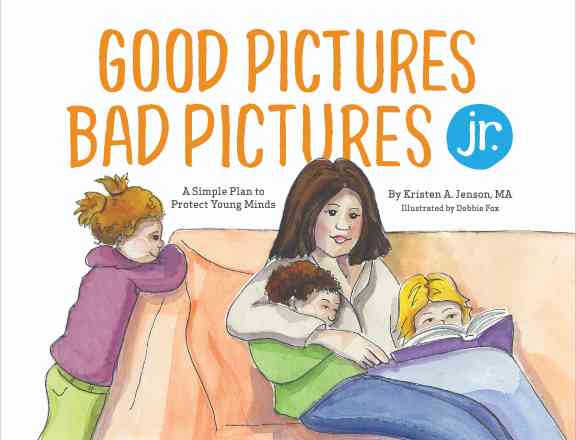

#MeToo — 10 Ways Predators Are Grooming Kids
Is your child being groomed right in front of you? The #MeToo social media tsunami has revealed the mind-blowing scope of sexual exploitation. I’ve been shocked to discover just how many of my friends have suffered the trauma of sexual harassment and even rape.
To prevent your own children from becoming a #MeToo statistic, it’s important to learn how predators operate.

Would you recognize the difference between a pedophile and a person who is simply being friendly with your child? And have you trained your kids to recognize the warning signs?
In a world sickened with millions of sexual abuse images of children (child pornography) uploaded daily, it’s not surprising that the world is also crawling with child predators.
One of our readers, we’ll call her Katrina, shares a traumatizing story of how she recognized and cut off the advances of a potential child predator. I believe her experience and advice will help other parents protect their precious children from sexual abuse.
A close call [reader story]
A year ago, I thought grooming involved personal hygiene or giving a dog a haircut. I have since learned it is something much worse. Grooming also describes the process predators use to prepare their victim(s) for sexual abuse and/or assault. According to the U.S Department of Justice NSOPW:
“Many victims of grooming and sexual abuse do not recognize they are being manipulated, nor do they realize how grooming is a part of the abuse process.”
Was my daughter a potential victim?
About eighteen months ago I noticed that a woman at church, in her mid-forties, was taking an interest in my seven-year-old daughter. I didn’t think much of it as first. My daughter tends to be outgoing and well loved in our church community. Then one day at church my daughter asked if she could go sit by this woman.
Something did not feel right. I can’t explain it, but instantly it felt as if I’d been hit in the stomach. Events of the past few weeks flew through my mind. Yes, this woman was taking an excessive interest in my child. She was kind and complimented her. She found common interests they shared and told me she loved my daughter.
My daughter had commented that she and this woman were “totally alike.” She said they looked alike and liked the same things. The woman had given my daughter gifts and actively sought out opportunities to be around her. She had even asked to have a playdate with my child.
I'd also found a few text messages between the two of them on my phone expressing that they were “BFFs”. A seven-year-old and a woman in her forties should not be telling each other they are “BFFs”!
As I considered these actions, I went with my intuition. I stopped all further communication and contact between them.
Was my child being groomed right in front of me?
Later, I came upon a grooming list and was shocked to see that 8 of the 10 items on the list had occurred between my daughter and this woman! Had she been grooming my daughter right in front of me? Had my ignorance and trusting nature let it happen?
10 grooming behaviors every parent should recognize:
- Seeks out and pays extra special attention to a child
- Acts overly interested in the child
- Buys them gifts and or treats
- Touches or hugs them in front of trusted adults which makes the child think the touching is OK
- Finds out what your child’s likes and interests are and then flatters the child by claiming to have the same likes and interests
- Pretends to be a good friend to the child, even “best friends” and acts as a sympathetic listener when child is upset
- Tries to find ways to be alone with the child
- Tells the child dirty jokes or shows them pornography
- Grooms parents to gain more access to the child such as offering to babysit
- Grooming happens online as well so be aware of your children’s online activities
As a concerned parent I took steps to educate myself and teach my child. I began to have better body safety discussions with all my children. The post, The 3 Big Red Flags of Sexual Abuse really helped me have these crucial conversations with my daughter.
[[CTA]]
At first, my daughter had a tough time accepting my worries. She said the woman was so nice and had given her gifts. As I explained the list of things a predator (or someone who wants to hurt children) will do, my daughter was able to realize and accept the possibility that this woman might have had bad intentions.
We discussed ways she could help protect herself. For example, avoid being alone in restrooms. We also told her that if she ever felt unsafe she could go to a trusted adult and ask them to take her to her mom or dad. We had her practice by saying it and acting it out.
Children need help with their feelings
If this woman had sexual intentions is not certain, but I felt strongly she was attempting to develop an inappropriate emotional connection with my child. While no sexual abuse or assault occurred, my child still had to sort out feelings of affection she had developed for this woman.
Parents can help children understand and deal with their emotions. If abuse or assault has occurred, the child needs reassurance they did nothing wrong. It is never the child's fault. Make certain the child understands how much you love them. Work to create a safe environment for your child. Discuss concerns, fears, and conflicting emotions. If a child comes to us and we brush them off, it sends the message we do not care and we really do not want to help them.
8 strategies to help prevent grooming
- Teach body safety at an early age, as early as 3 years old
- Teach your children about grooming behaviors
- Teach them to report any gifts or treats they receive from teachers at school, church, from coaches, family members, and even from their friend’s parents, etc.
- Teach them it is never okay for anyone to show them pornography or tell them dirty jokes
- Help your children know they can come to you with concerns without fear of their feelings being minimized or getting in trouble
- If your child comes to you and is having a tough time telling you what happened…take the HINT! It is something BIG to them! Ask them if it is hard to say or if it is embarrassing to talk about. Help them through it with love and encouragement, and don’t freak out!
- Teach your children to report any time they’ve been alone with an adult (that you haven’t previously okayed). Unfortunately this includes extended family members. Remember the groomer is usually not a stranger.
- Most importantly do not be afraid to talk to your children. Children who are educated are empowered and have a greater chance of protecting themselves.
Protect Young Minds is grateful for the parents who contribute to our blog! We appreciate Katrina for her honesty and awesome advice!



Good Pictures Bad Pictures Jr.
“I highly recommend this book to all people with children. A must have for all parents!” —Amazon Review








